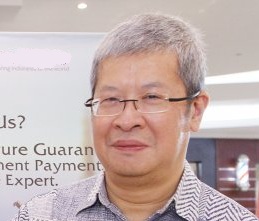
Richard Kumaradjaja, Ph.D.
Former BINUS Business School Faculty Member
Case Document
[CASE STUDY] PT. HOLLITECH: USING INTELLECTUAL CAPITAL TO WIN CUSTOMERS (PART A)
Stefanus Mulianto, Director of PT. Hollitech, was proud of the achievement of PT. Hollitech since the day it was founded. He had reasons for that since his company was the only company that successfully developed applications software for the garment/apparel industry in Indonesia. The latest achievement was shown in late 2005 when the company acquired an Indian IT company. Over the past four years Stefanus Mulianto had been responsible for managing the operations of company as well as its human resources. Once an IT department of a textile/garment conglomerate, PT. Hollitech had grown into a medium-sized international IT services company delivering various solutions to financial institutions, garment, and hospitality industries. Innovation, quality and on-time delivery of IT solutions had always been part of the strategy that Stefanus Mulianto believed was the key driver to PT. Hollitech’s success.
[CASE STUDY] BKM IN 2002, PRE-PAID ELECTRONIC BALANCE TOP-UP SERVICE WITH EDC (B)
Back in 2002, BKM was just another company in Indonesia struggling to survive and just tried to keep-up to fulfill its operational expenses. It was just only from one project, the BKM – Telkom agreement for the Telkomsel Autorefill Service had turned BKM into a profitable operation in the following year and subsequently in the next years ahead, up until now (2008).
[CASE STUDY] BKM IN 2002, PRE-PAID ELECTRONIC BALANCE TOP-UP SERVICE WITH EDC (A)
BKM had initiated and orchestrated all the business relationships towards the successful launch and operation of the Telkomsel Autorefill service. The project was initiated back in March 2002 when BKM showed the capability to deliver the voucher-less business to Telkom B2B Project. As a pioneer of providing simPATI prepaid service, Telkomsel faced the challenge to provide huge distribution channels of its prepaid air-time. Jatis, another potential partner for mobile banking solution, presented the proposal to Telkomsel to address the challenge, at the same day when BKM through Telkom B2B Project presented Autorefill Solution to Telkomsel. At the end, Telkomsel’s Marketing Director, Mr. Woerjanto, then agreed to proceed with BKM solution in a five years contract. After long process, a back-to-back contract agreement between BKM to Telkom, and Telkom to Telkomsel was signed on November 25, 2002. Telkom B2B Project was set to prepare a new business on electronic transaction. At that time, Telkom was eager to work on any new business development on non-telephony applications, outside their normal traditional telephony services. Through indirect business relationship, whereby BKM’s proposal sealed with Telkom brand, BKM secured the project over Telkom domination (Telkom had majority ownership share in Telkomsel, 65%). Telkom provided the entire electronic refill application hosting and hardware infrastructure for running the data center operation for Telkomsel Autorefill service.
[CASE STUDY] ASAHIMAS IN FACING THE OIL PRICE INCREMENT IN 2005 AND ITS EFFECT TO THE COMPANY BUSINESS
In 2006 Asahimas recorded net sales value of Rp 1.5 trillion or 10 % decreased compared to 2005. The increasing oil price was the culprit. Actually, the feasibility study to change the fuel for combustion process to natural gas had been done before 2005. Unluckily the increasing oil price advanced the progress of the project.
Then, early in 2006 the company established a task force team to continue the study of fuel conversion. The aim of the team was to reduce cost of production, the conversion should be done without loss of production, no materials in the flat glass process should be changed, and the project should be completed as soon as possible.
Despite the noble aim of the project, questions still remained for the management were : should they continue the conversion program ? Regarding the big value to invest, should they apply to all plants or not? What was the plan B if the conversion was done and the price of natural gas increased?
